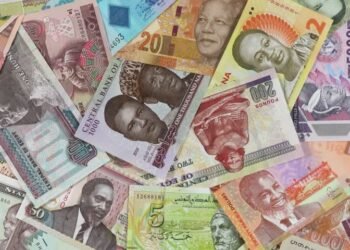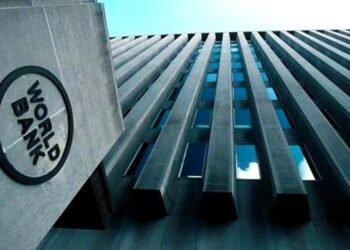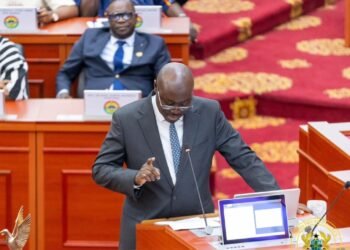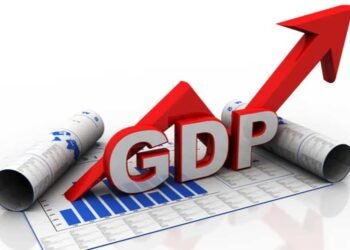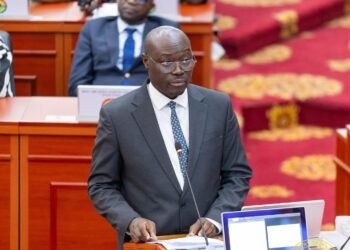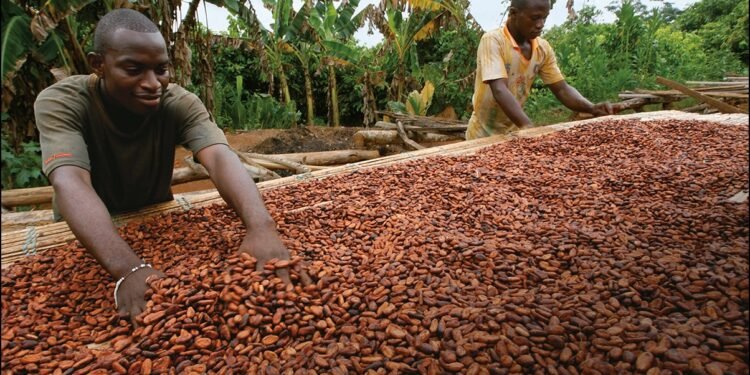Foreign investors pulled back sharply from Ghana’s debt securities in 2024, slashing their holdings to GH₵13.4 billion by December from GH₵17.5 billion the previous year.
The decline, revealed in the 2024 Financial Stability Review, highlights the waning appetite for government and corporate debt instruments among international investors. Analysts say the retreat was largely influenced by concerns over fiscal risks, interest rate movements, and lingering uncertainty around Ghana’s debt sustainability.
The cutback represents a 23% year-on-year decline in debt security holdings, underscoring foreign investors’ growing caution in the bond market. While Ghana made progress in stabilizing its economy after debt restructuring efforts, investors appeared unwilling to significantly increase exposure to fixed-income assets.
In contrast, foreign investors displayed remarkable confidence in Ghana’s stock market, channeling billions into equity securities. Their holdings surged to GH₵33.6 billion in 2024, up from GH₵20.9 billion in 2023. This nearly 61% jump reflected the stronger performance of listed companies and improved stability in the equities market.
The report attributes the surge to better corporate earnings, renewed investor confidence, and favorable macroeconomic signals that encouraged portfolio rebalancing away from debt into equities. This shift suggests that foreign investors are increasingly optimistic about Ghana’s growth trajectory and the long-term prospects of key sectors such as telecommunications, banking, and consumer goods.
Market Stability Improves Dramatically
One of the standout findings of the report was the significant improvement in the stock market’s stability index. The index, which measures the proportion of stocks posting negative returns, improved to 0.39 in 2024, up from 0.23 in 2023.
This improvement was largely driven by a reduction in loss-making stocks. Only 12.9% of shares recorded negative returns in 2024, compared to a staggering 33.3% in 2023. The rebound indicates a healthier equity environment, where companies are delivering stronger results and investor sentiment is far more resilient.
The positive shift in market stability has not gone unnoticed. Experts believe it could pave the way for sustained inflows into Ghana’s equity market in 2025, especially if macroeconomic stability is maintained.
Concentration Risk Looms
Despite the growth in equities, the report also warned of concentration risks within the Ghana Stock Exchange. Market activity remained heavily dependent on a handful of stocks, making the market vulnerable to swings in their performance.
According to the Herfindahl-Hirschman Index (HHI), which measures market concentration, the access dimension stood unchanged at 0.39 by the end of 2024. This means that a small cluster of dominant firms continued to account for the bulk of market capitalization and trading volumes.
Such concentration exposes the stock market to risks, as negative developments in these key firms could disproportionately impact overall performance. Policymakers and regulators may need to address this imbalance to ensure broader participation and resilience in the market.
Outlook for 2025: Debt Market Recovery Expected
In the months ahead, the 2024 Financial Stability Review struck a cautiously optimistic tone. While foreign investors pulled back from debt instruments in 2024, the report projects a recovery in debt market participation in 2025.
The expectation is anchored on sustained macroeconomic recovery, fiscal consolidation, and favorable economic prospects. With Ghana steadily regaining investor confidence after its debt restructuring, international investors may find renewed value in fixed-income securities, particularly if yields remain attractive relative to other frontier markets.
At the same time, the equity market is poised to build on its momentum. If corporate earnings remain strong and the broader economy continues to recover, Ghana could see even larger inflows into stocks, further strengthening capital market development.
The contrasting trends between debt and equity holdings underscore the complexity of foreign investor sentiment in Ghana. On one hand, skepticism about debt sustainability has limited appetite for bonds; on the other, optimism about corporate profitability and economic recovery has fueled equity inflows.
For policymakers, the challenge will be to sustain macroeconomic reforms that enhance debt sustainability while supporting capital market diversification. By addressing concentration risks and creating an enabling environment for more firms to list on the stock exchange, Ghana could build a more balanced and resilient capital market.
READ ALSO: Fiscal Pressures Mount as T-Bill Shortfall Persists on Ghana’s Debt Market




